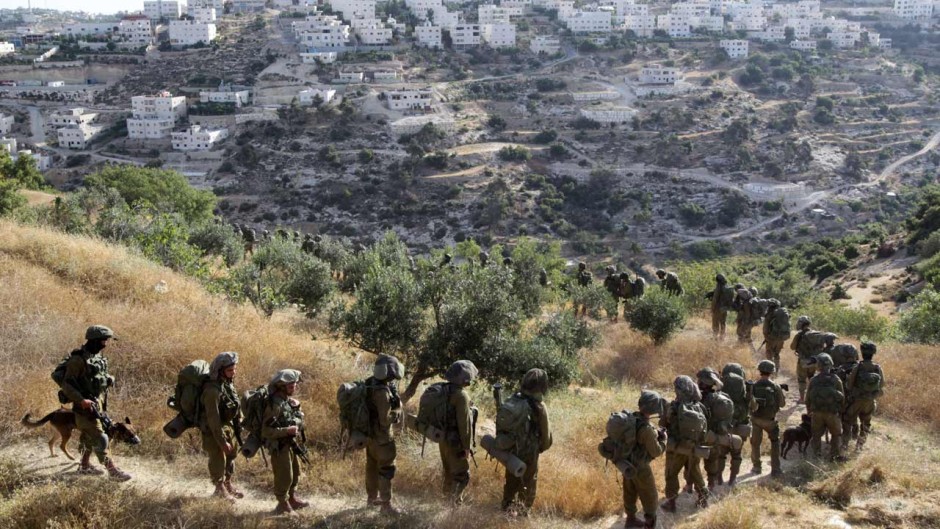Israel’s invariably tense and uneasy relations with the Palestinians in the West Bank and the Gaza Strip have hit a new low of late.
The collapse of U.S.-brokered peace talks in April, ending nine months of negotiations between the Israeli government and the Palestinian Authority, engendered mutual acrimony, mistrust and bitterness — the toxic ingredients that have often defined Israel’s relationship with the Palestinians.
The subsequent decision by the Palestinian Authority and Hamas to sign a reconciliation agreement and form a six-month interim government, composed of technocrats with no apparent affiliation to either side, was roundly denounced by Israel.
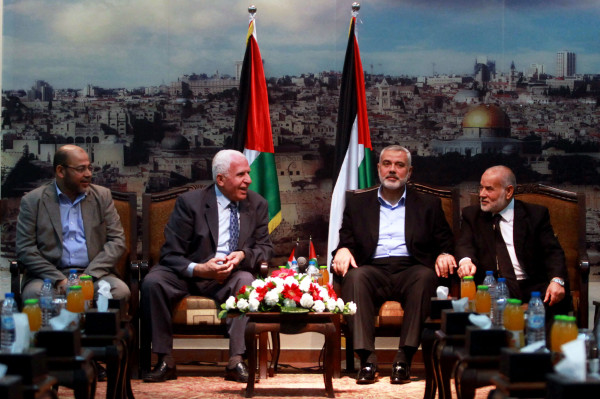
The kidnapping and killing of three Israeli teenagers in the West Bank — Naftali Fraenkel, Gilad Shaar and Eyal Yifrach — only heightened existing tensions.
The abduction and murder of Mohammed Abu Khdeir, a 16-year-old Palestinian Arab living in a middle-class suburb of eastern Jerusalem, enraged Palestinians, who claim that the perpetrators were Jewish settlers from the West Bank.
As the kidnappings played out, Israeli communities were bombarded by rockets and mortars fired from the Gaza Strip, from which Israel withdrew unilaterally withdrew in 2005. In a familiar vicious cycle, Israel retaliated with air strikes and the Palestinians launched yet more projectiles, resulting in stalemate.
Where all this ends no one knows. What is certain is that all these negative developments leave the century-long Arab-Israeli conflict far more entrenched than ever.
It’s clear that the latest downward spiral in Israel-Palestinian relations, probably the worst since the second intifada, can be traced back to mid-April, when U.S. Secretary of State John Kerry, the initiator of the current round of peace talks, began to realize that they were on the brink of dissolution.
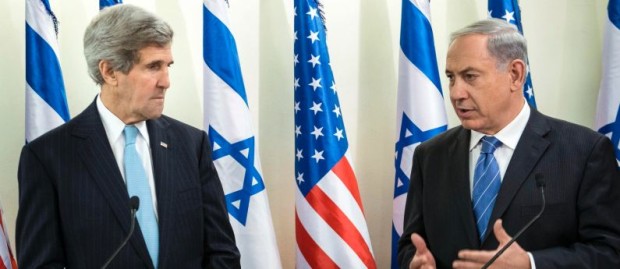
After nine months of largely fruitless negotiations, which often seemed like an exercise in sheer futility, Kerry’s chief representative at the talks, Martin Indyk, the former U.S. ambassador to Israel, returned to the United States, his mission unaccomplished.
Israeli Prime Minister Benjamin Netanyahu had reneged on an agreement to release a last batch of Palestinian prisoners, and the president of the Palestinian Authority, Mahmoud Abbas, rejected a framework for peace drawn up by the United States.
In addition to these stumbling blocks, Netanyahu and Abbas remained far apart on core issues like final borders, settlements and Palestinian refugees. And in its usual unilateral style, designed to create unalterable facts on the ground, Israel continued to expand settlements in the West Bank, forcing the Palestinians to believe it was negotiating in bad faith.
With the peace process having reached an impasse, as predicted by most observers, and with the prospect of a two-state solution still far in the distance, the Palestinian Authority applied for membership in 15 international treaties and conventions. Israel responded with outrage, since membership in these groups enhances the Palestinian campaign for statehood.
Israel was further outraged by the April 23 unity accord signed by the Palestinian Authority and Hamas, which have been and still remain rivals for leadership of the Palestinians.
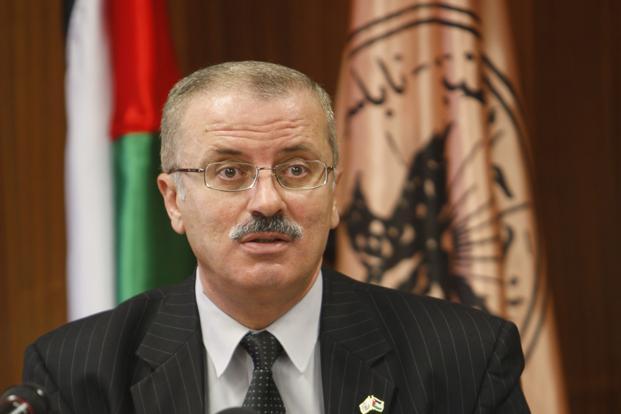
On June 2, Abbas swore in a new Palestinian unity government headed by Rami Hamdallah, who has been prime minister of the West Bank-based Palestinian Authority for the last year. His cabinet is made up of businessmen, lawyers and academics who have no formal ties with either Fatah, the secular nationalist organization at the heart of the Palestinian Authority, or with Hamas, an Islamic fundamentalist group which has controlled Gaza since 2007, opposes a two-state solution and is committed to Israel’s destruction.
While Abbas has spoken glowingly of the reconciliation agreement as a step toward Palestinian unity, Netanyahu has denounced it as a capitulation to terrorism. Netanyahu has warned that Israel “will not conduct diplomatic negotiations with a Palestinian government backed by Hamas,” and has urged governments around the world to boycott it.
Much to Israel’s deep disappointment, the United States has decided to work with the new Palestinian government, at least as long as it abides by three internationally accepted principles: recognition of Israel, rejection of violence and a commitment to past agreements signed by Israel and the Palestinian Authority. But in a sign that Congress may force President Barack Obama to change course, 88 out of 100 U.S. senators recently sent a letter to him decrying the reconciliation pact.
In the meantime, Russia, China, the European Union and Turkey, among others, have officially endorsed the new Palestinian government.

Netanyahu, having blamed Hamas for the June 8 kidnapping of the three Israeli teens, used the incident to exert pressure on Abbas to scuttle the reconciliation agreement and to warn him that the Palestinian Authority would be held responsible for all future acts of terrorism originating in the West Bank and Gaza.
As expected, the Palestinian Authority declined to break the agreement with Hamas. However, Abbas permitted his forces to lend Israel a helping hand in its bid to find the teenagers. In a forceful comment, he declared that security coordination with Israel is in the Palestinians’ interest, and that a third Palestinian uprising would not be helpful to the Palestinian cause.
Hamas, which had urged members of its armed wing to kidnap Israeli civilians and soldiers to facilitate the release of Palestinian prisoners, excoriated Abbas’ policy of cooperation with Israel. Hamas also praised the abduction of the threesome, but denied any involvement.
Israel announced that the prime suspects in the kidnapping, Marwan Qawasmeh and Amer Abu Aisha, belong to a clan in the West Bank town of Hebron closely affiliated with Hamas. They are still at large.
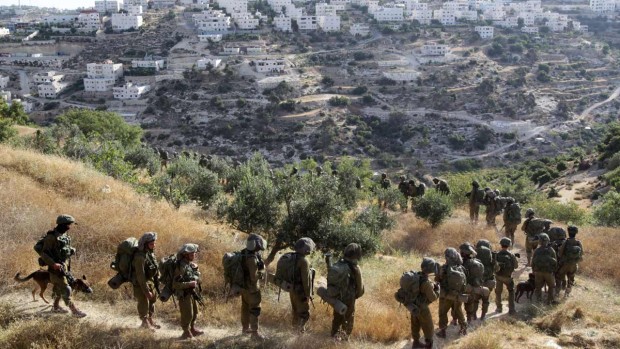
In an attempt to find the teenagers and weaken Hamas, Israel arrested scores of Palestinians in the West Bank, some of whom are senior members of Hamas. During these raids, six Palestinian civilians were killed, and their deaths sparked widespread indignation and anger.
After the corpses of the three Jewish teenagers were found, Netanyahu said, “Hamas is responsible, and Hamas will pay.” But at this point, there is no direct evidence that Hamas actually planned the operation.
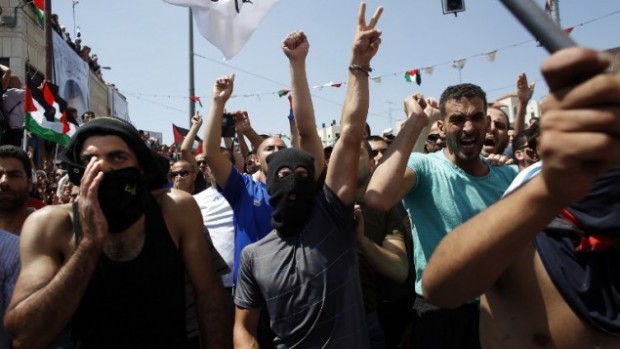
The murder of Mohammed Abu Khdeir, immediately condemned by Israel, has escalated tensions. At his funeral in eastern Jerusalem, annexed by Israel in 1967, clashes broke out between Israeli police and Palestinian demonstrators.
And in an ominous development, Israeli Arabs in the last few days have rioted in support of the Abu Khdeir family.
During the 18 days between the kidnapping of the Israeli teenagers and the gruesome discovery of their bodies in a field near Hebron, Palestinian gunmen in Gaza broke a shaky truce with Israel that ended over a week of hostilities in November 2012. By one estimate, they have fired more than 150 rockets and mortars into Israel since June 12, prompting retaliatory Israeli air strikes.
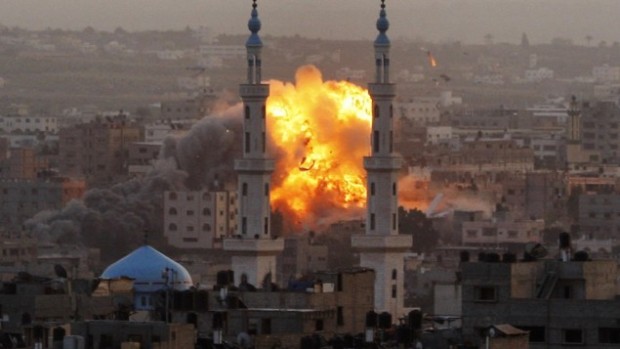
Abbas has condemned the Palestinian barrages, as well as Jewish settler violence, and has urged all factions in Gaza to observe the truce, which was hammered out by the United States and Egypt in the wake of Operation Pillar of Defence, Israel’s last massive bombardment of Gaza.
Israeli Foreign Minister Avigdor Liberman, a hawk, has called on Netanyahu to order a reoccupation of Gaza. “The idea that quiet will be answered with quiet is a serious mistake,” he said.
For now, Israel appears more interested in de-escalating the violence than in igniting a war in Gaza, which would add one more problem to its litany of problems with the Palestinians.
